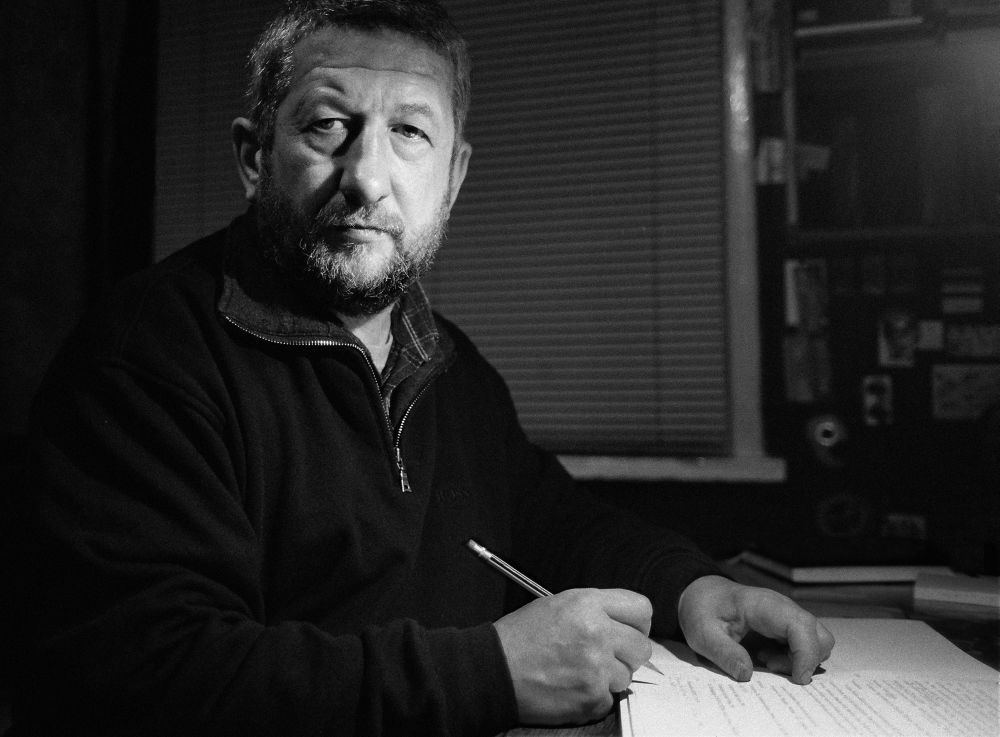Jurgis Kunčinas
Jurgis Kunčinas (1947–2002) is still one of the most popular Lithuanian writers. Very prolific, he wrote mostly half-fictionalised autobiographical stories, some novel-length, some shorter. He also published several books of poetry (including poetry for children) and a few collections of non-fiction essays. He was a very proficient translator from German. In life and in work, he was known for his ability to sense beauty in the mundane, even in dirtiness, and for his humour, sometimes bitter-sweet, but often side-splitting, which is rare in Lithuanian literature. He is also known and admired for his penchant for describing well-known places and cityscapes (usually of Vilnius but also of his native Alytus), and for transforming them into something intrinsically romantic and beautiful. Kunčinas is also one of the most widely translated Lithuanian authors: his works are available in Polish, Russian, Swedish and German. His often drunken vagabond characters invoke comparisons with Charles Bukowski and beatnik literature.
Tūla (Tūla). Vilnius: Lithuanian Writers’ Union Publishing House, 1st ed. 1993; Vilnius: Tyto alba, 2nd ed 2007; Vilnius: Lithuanian Writers’ Union Publishing House, 3rd ed. 2013. – 254 p.
Tūla is every Lithuanian art student’s favourite book. Roaming through the old streets of Soviet Vilnius, the nameless narrator drinks, wastes time, and remembers the week he spent with Tūla, a girl he was hopelessly in love with and then lost. The memory is the only thing that really matters in the otherwise pointless, dreary and booze-soaked life of the narrator, who is in fact a literary type in his own right, a ‘vagabond intellectual of Soviet society’, as a critic once called him. Thus, the novel is three-layers. It is a story of star-crossed lovers and unattainable, impossible and in a way incredible, imagined love. Tūla herself does not have a single line of speech in the whole book. It is a love song for Vilnius, seen through the soft focus of bleary drunken eyes. It is also a valid social commentary on the late Soviet years, and the situation of a well-educated, creative person who is at odds with the regime, and thus has no place in society.
Selected translations
Croatian: Tūla. Translated by Mirjana Bračko. Zagreb: V.B.Z., 2018
Czech: Tūla. Translated by Věra Kociánová. Pecka: Venkovskie dilo, 2017
German: Tūla. Translated by Markus Roduner. Wiesbaden: Corso, 2017
English: Tūla. Translated by Elizabeth Novickas. Flossmoor: Pica Pica Press, 2016
Russian: Туула; Менестрели в пальто макси. Translated by Jekaterina Jonaitienė, Dalija Kijiv. Saint Petersburg: Издательство Ивана Лимбаха, 2008
Swedish: Tula. Translated by Jonas Öhman. Vasteras: Forfattarhuset, 2005
Polish: Tula. Translated by Alicja Rybałko. Sejny: Pogranicze, 2002
Contact for inquiries: kotryna.pranckunaite@lithuanianculture.lt
